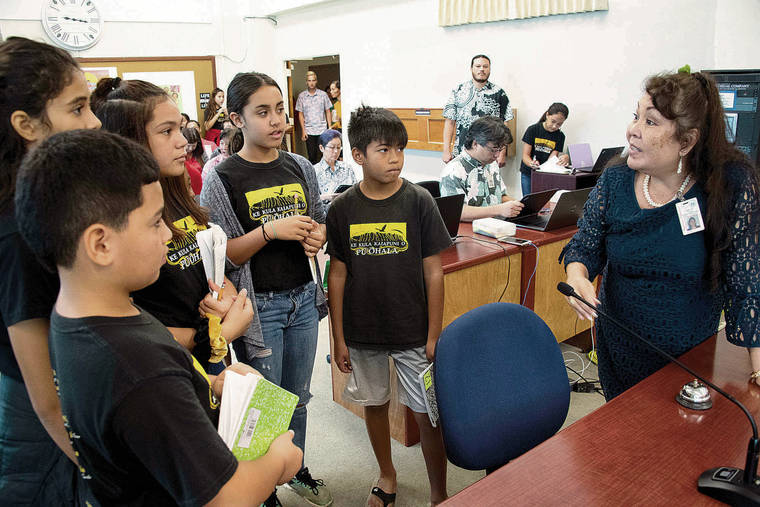It is indeed a critical issue for our state’s public education system when about 50% of our new teachers leave the system within their first five years.
We need to pay our newest colleagues a livable-in-Hawaii wage as a start. And we need to devote the resources it takes to support the beginners in our profession to experience success if we want them to persevere and grow into life-long educators.
Beginning teachers — those who are just entering the classroom as full-fledged teachers for the first time — are the most vulnerable and at the most critical point in their professional lives. Research, both national and local, shows that beginning teachers who are supported by trained, dedicated mentors and who experience success in the first two years, are far more likely to stay in the profession and continue to grow in effectiveness.
We need generations of new teachers, grounded in this growth mindset, to provide the quality education that will produce the future leaders of our world.
Our state Department of Education recognized this truth when it mandated that all Complex Areas (districts) develop mentoring programs for beginning teachers that meet recognized quality standards. These standards include the selection and professional training of qualified mentor candidates and the provision of 180 minutes a month of mentoring interaction with beginning-teacher mentees each month. They also outline research-based professional processes and tools that are known to be impactful in accelerating the growth of beginners’ teaching efficacy.
While every Complex Area has worked to develop programs that meet these standards, we have a long way to go to provide the gold standard, high-quality mentoring program like the one in place in the DOE Windward District of Oahu.
This program fields a team of trained teacher mentors who are full release – their only, full-time job is to provide wrap-around support to all beginning teachers in the district in their first two years in the classroom. These peer mentors are NOT evaluators or administrators. They work with complete confidentiality, meeting with their beginning teachers in their classrooms to support them in building their individual effective teaching practices.
But even this program lacks a critical component: dedicated release time for the beginning teachers to meet with their mentors to engage in these professional learning processes.
At present, the full-release mentors have to depend on their mentees volunteering their prep periods, lunch periods or after-school hours to engage fully in the first-class mentoring support that’s offered to them.
If we’re serious about supporting the success, and retention, of beginning teachers, we — our Department of Education, our Board of Education, our Legislature and our society — need to commit to a full-bodied induction and mentoring model as a guarantee to every new teaching recruit.
Such a model would include:
>> Guaranteed, dedicated release time within the work week for beginning teachers to meet with mentors to do the rigorous work of growing their teacher effectiveness.
>> State standards for the induction of beginning teachers, to which all schools would adhere, that support beginners with appropriate assignments, fully resourced classrooms, release from burdensome committee assignments for which they’re not prepared, and a scaffolded evaluation system that recognizes their need for time to grow into the professional positions we want them to hold.
Teachers are by nature an idealistic and altruistic set of people. They need a living wage, of course, but they also need the thrill of success — the thrill of seeing the learners light up with new understanding. That’s the vision that moved them to choose to become educators. We must help them succeed. If they succeed they will stay.
Elly Tepper is the Castle-Kahuku Complex induction program coordinator; she was the 2000 Hawaii State Teacher of the Year.

